Influential Jewish Canadians
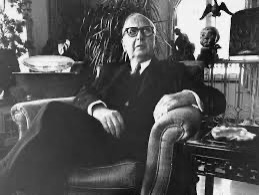
Samuel Bronfman (1889–1971) – Business & Philanthropy
Contribution: Founder of Seagram Company Ltd., one of the world’s largest distilleries.
Time Period: 1920s–1960s
Impact: As an immigrant from Eastern Europe, Samuel Bronfman turned his family’s modest liquor business into Seagram, a global powerhouse in alcohol production. He played a crucial role in Canadian economic development, creating thousands of jobs in manufacturing, sales, and distribution. Beyond business, Bronfman was a major philanthropist, funding hospitals, universities, and Jewish community programs. He also led the Canadian Jewish Congress, advocating for Jewish refugees after World War II and combatting discrimination. His legacy continues through the Bronfman Foundation, which supports education and social justice initiatives across Canada.
Moses Znaimer (b. 1942) – Canadian Media
Contribution: Founder of Citytv, MuchMusic, and other influential Canadian media networks.
Time Period: 1970s–present
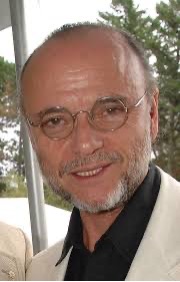
Impact: Moses Znaimer revolutionized Canadian television by breaking traditional broadcasting norms. Citytv introduced a more casual, interactive, and diverse style that set the stage for modern Canadian broadcasting. His MuchMusic network (Canada’s answer to MTV) gave Canadian musicians a platform, launching careers of artists like The Tragically Hip and Alanis Morissette. Znaimer also pioneered programming for seniors with ZoomerMedia. His impact is seen in how Canadian television evolved to reflect the nation’s multicultural identity and artistic talent.
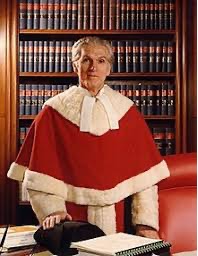
Bora Laskin (1912–1984) – Supreme Court of Canada
Contribution: First Jewish Chief Justice of Canada (1973–1984).
Time Period: 1970s–1980s
Impact: Bora Laskin reshaped Canadian constitutional law and was a key figure in the adoption of the Canadian Charter of Rights and Freedoms (1982). He was a progressive voice in the Supreme Court, championing workers’ rights, civil liberties, and judicial independence. Laskin helped modernize Canadian law, ensuring that minorities, women, and labor unions received greater legal protection. His influence still shapes Canadian jurisprudence today, protecting human rights and ensuring fairness in the legal system.
Irving Layton (1912–2006) – Literature & Poetry
Contribution: Influential Canadian poet who reshaped Canadian literature.
Time Period: 1950s–1990s
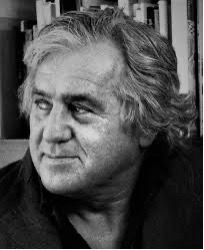
Impact: Irving Layton was a trailblazer in Canadian poetry, introducing a bold, raw, and modern style. His works tackled themes of Jewish identity, sexuality, and social justice, influencing generations of Canadian poets, including Leonard Cohen. Layton helped put Canadian poetry on the global map, receiving numerous literary awards and inspiring a cultural renaissance in Canadian literature. His works are still widely studied, shaping Canada’s literary voice.

Leonard Cohen (1934–2016) – Music & Literature
Contribution: One of Canada’s most celebrated musicians, songwriters, and poets.
Time Period: 1960s–2010s
Impact: Leonard Cohen’s music and poetry redefined Canadian culture on the world stage. His deep, reflective lyrics explored themes of love, religion, and human suffering, making his songs timeless. Hits like Hallelujah became global anthems. Cohen bridged literature and music, winning international awards and putting Canada’s artistic talent in the spotlight. His legacy continues through scholarships and programs that support young artists in Canada.
Isadore Sharp (b. 1931) – Business & Hospitality
Contribution: Founder of Four Seasons Hotels and Resorts.
Time Period: 1960s–present
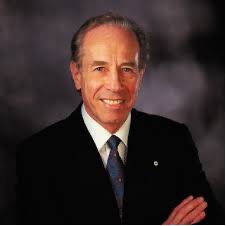
Impact: Isadore Sharp transformed Canada’s hospitality industry, creating a globally recognized luxury brand known for customer service and innovation. The Four Seasons set new standards in hotel design, staff training, and guest experience, positioning Canada as a leader in global tourism. His business empire employs thousands of Canadians and contributes billions to the economy.
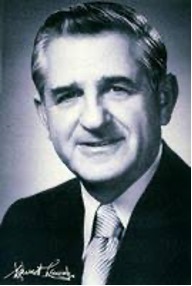
David Lewis (1909–1981) – Politics & Labour Rights
Contribution: Co-founder of New Democratic Party (NDP).
Time Period: 1940s–1970s
Impact: David Lewis was a driving force behind Canada’s labor movement. He fought for workers’ rights, pensions, and healthcare, laying the groundwork for Canada’s progressive social policies. His work paved the way for Canada’s universal healthcare system, which millions of Canadians benefit from today.
Morley Torgov (b. 1927) – Literature & Satire
Contribution: Award-winning author known for humorous portrayals of Jewish life in Canada.
Time Period: 1970s–present
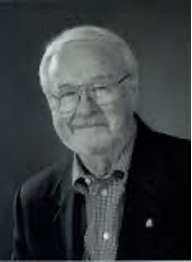
Impact: Morley Torgov has played a significant role in preserving and sharing Jewish-Canadian identity through literature. His novels, such as A Good Place to Come From and The Outside Chance of Maximilian Glick, humorously and poignantly depict Jewish life in small-town Canada, helping to educate a broader audience about Jewish traditions, struggles, and triumphs. His work has been widely recognized, earning him the Leacock Medal for Humour, Canada’s top award for humorous literature. By bringing Jewish narratives to the forefront of Canadian storytelling, Torgov has helped broaden national discussions on cultural diversity, identity, and heritage. His influence is seen in Canadian film and television, as several of his works were adapted for the screen, making Jewish-Canadian experiences more visible in popular culture. His ability to blend humor with deep social insights has also paved the way for a new generation of Canadian writers who explore multicultural experiences in their work.

Barbara Frum (1937–1992) – Journalism & Broadcasting
Contribution: Award-winning journalist, broadcaster, and host of CBC’s The Journal.
Time Period: 1970s–1990s
Impact: Barbara Frum was one of Canada’s most influential journalists, known for her tough, insightful interviews that shaped public discourse. As the host of CBC’s The Journal, she redefined television journalism by emphasizing investigative reporting and hard-hitting political interviews. Her no-nonsense style and deep research ensured that Canadians were informed about critical national and global issues, from political scandals to economic policies and international conflicts. She broke gender barriers in journalism, paving the way for women in media and inspiring a new generation of female broadcasters. Beyond her work on television, Frum was an advocate for press freedom and journalistic integrity, defending the role of the media in holding governments accountable. She also played a significant role in making complex world events accessible to the Canadian public, ensuring that foreign affairs were covered with depth and accuracy. Her work at CBC remains a gold standard for Canadian journalism, and she is remembered as one of the country’s most respected and trusted voices in news broadcasting.
Annamie Paul (1972–Present) – Politics & Activism
Contribution: First Black Canadian and first Jewish woman leader of a major federal party in Canada (Green Party).
Time Period: 2020–2021

Impact: Annamie Paul broke barriers in Canadian politics, highlighting diversity, inclusion, and social justice issues. As Green Party leader, she advocated for environmental policy, human rights, and combating antisemitism. Her leadership inspired greater political representation among minority communities in Canada.
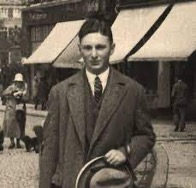
Max Stern (1904–1987) – Arts & Philanthropy
Contribution: Art dealer and philanthropist who supported Canadian and Jewish artists.
Time Period: 1950s–1980s
Impact: Max Stern was instrumental in developing Canada’s fine arts sector. After escaping Nazi Germany, he rebuilt his career in Canada, becoming one of the country’s most influential art collectors and dealers. He played a critical role in promoting Canadian artists internationally, helping to establish Canada as a serious player in the global art world. His generosity extended beyond business—his estate donated over 400 artworks to Canadian museums, and he funded scholarships at institutions like Concordia University. His contributions helped make Montreal and Toronto cultural hubs, ensuring that Canada’s artistic identity was recognized worldwide.
Julius Grey (b. 1948) – Human Rights & Law
Contribution: Civil rights lawyer specializing in constitutional law, language rights, and immigration.
Time Period: 1980s–present
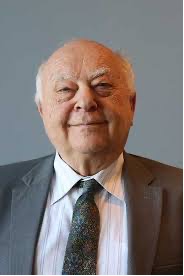
Impact: Julius Grey has been a leading voice in civil liberties, minority rights, and social justice in Canada. Throughout his career, he has argued landmark cases before the Supreme Court of Canada, helping shape laws on language rights, immigration policy, and freedom of expression. He played a major role in challenging Quebec’s Bill 101, which restricts the use of English in the province, advocating for the rights of Anglophones, immigrants, and other linguistic minorities. His legal victories have strengthened protections for civil rights and due process in Canada, making the legal system more equitable and accessible for all citizens.
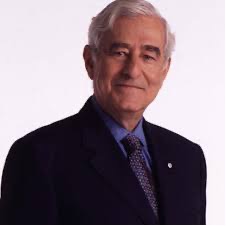
Joe Schlesinger (1928–2019) – Journalism
Contribution: International war correspondent and veteran CBC journalist.
Time Period: 1960s–2000s
Impact: Joe Schlesinger was one of Canada’s most respected journalists, known for his fearless reporting on global conflicts. A Holocaust survivor, he immigrated to Canada and became a foreign correspondent for the CBC, covering wars, revolutions, and political upheavals in Vietnam, Afghanistan, Eastern Europe, and the Middle East. His in-depth reporting provided Canadians with a greater understanding of world affairs, shaping public discourse on international politics. Schlesinger also played a crucial role in explaining Canada’s place in global conflicts, influencing government policies on refugees, immigration, and foreign aid. His work earned him national recognition, and his legacy continues to inspire new generations of Canadian journalists.
Eddie Goodman (1928–2006) – Law & Politics
Contribution: Influential lawyer, political strategist, and philanthropist.
Time Period: 1960s–2000s
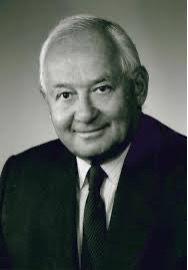
Impact: Eddie Goodman was a power broker in Canadian conservative politics. As a trusted advisor to multiple Progressive Conservative Party leaders, he shaped the political careers of figures like Brian Mulroney and John Diefenbaker. His legal and political acumen played a crucial role in modernizing Canada’s conservative movement, helping the party adapt to changing social and economic realities. Goodman was also deeply involved in charitable work, supporting hospitals, education, and Jewish community initiatives. His impact extends beyond politics—his contributions helped strengthen the legal profession in Canada, as he mentored some of the country’s top lawyers and judges.

Mark Breslin (b. 1952) – Comedy & Entertainment
Contribution: Founder of Yuk Yuk’s, Canada’s most famous comedy club chain.
Time Period: 1970s–present
Impact: Mark Breslin is credited with revolutionizing stand-up comedy in Canada. Before he founded Yuk Yuk’s in 1976, there were very few venues for Canadian comedians to develop their craft. His club provided a launching pad for many of Canada’s biggest comedy stars, including Jim Carrey, Norm Macdonald, Russell Peters, and Howie Mandel. Yuk Yuk’s expanded across the country, making stand-up a major entertainment industry in Canada. Breslin’s influence helped create a distinct Canadian comedic voice, inspiring a new generation of entertainers. He also advocated for free speech in comedy, pushing boundaries and challenging societal norms through humor. His legacy in Canadian entertainment and pop culture is undeniable.
Richard Pound (b. 1942) – Sports & Law
Contribution: Canadian Olympic Committee leader and International Olympic Committee (IOC) executive.
Time Period: 1970s–present
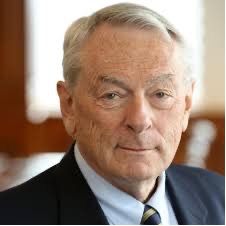
Impact: Richard Pound is one of Canada’s most influential sports administrators, playing a key role in bringing international sporting events to Canada. As a leading member of the International Olympic Committee, he helped secure the 1988 Winter Olympics in Calgary and was instrumental in Canada’s Olympic bid for Vancouver 2010. He also led efforts to combat doping in sports, establishing the World Anti-Doping Agency (WADA), which has transformed global sports ethics. His leadership has not only elevated Canada’s reputation in international sports governance, but also helped protect athletes and ensure fair competition worldwide.

David Asper (b. 1958) – Media & Philanthropy
Contribution: Lawyer, businessman, and philanthropist; former executive at CanWest Global Communications.
Time Period: 1990s–present
Impact: David Asper played a key role in expanding Canada’s media landscape, serving as an executive for CanWest Global Communications, one of Canada’s largest media companies. Under his leadership, newspapers, television networks, and radio stations flourished, ensuring diverse voices in Canadian news and entertainment. Beyond media, Asper has made significant contributions to law and education, funding scholarships and research programs at the University of Manitoba and the University of Ottawa. He also played a role in criminal justice reform, advocating for fairer legal processes and supporting innocence projects that help wrongfully convicted individuals.
Charles Bronfman (b. 1931) – Philanthropy & Canadian Identity
Contribution: Business leader and philanthropist; co-founder of Heritage Minutes.
Time Period: 1980s–present
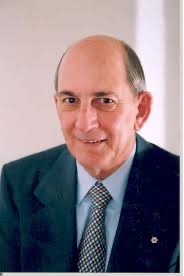
Impact: Charles Bronfman has dedicated his life to promoting Canadian heritage and identity. He co-founded the Heritage Minutes, the widely recognized short films that educate Canadians about their history. These educational segments have shaped national consciousness, ensuring that Canadians understand their past. Bronfman also established the McGill Institute for the Study of Canada, which conducts research on national identity and public policy. His philanthropy extends to medical research, environmental conservation, and Jewish cultural initiatives, making him one of Canada’s most generous benefactors.

Hershell Ezrin (b. 1947) – Politics & Policy
Contribution: Political strategist, diplomat, and government advisor.
Time Period: 1970s–present
Impact: Hershell Ezrin was a key figure in shaping Canada’s foreign and domestic policy. As Chief of Staff to former Prime Minister David Peterson, he helped modernize Ontario’s economic and social policies. He also worked as a diplomat in Washington, D.C., where he strengthened Canada-U.S. trade relations. Ezrin played a vital role in negotiating free trade agreements, ensuring that Canada remained a competitive economic force. His influence in politics, business, and academia has shaped Canadian governance and diplomacy.
Lorne Michaels (b. 1944) – Entertainment & Media
Contribution: Creator of Saturday Night Live (SNL).
Time Period: 1970s–present

Impact: Lorne Michaels transformed comedy and television worldwide, launching SNL, which became one of the most influential entertainment programs ever. His work provided a platform for Canadian comedians, including Mike Myers, Dan Aykroyd, and Martin Short. Through his production empire, Michaels put Canada at the heart of the global comedy industry, making Toronto a hub for comedic talent. His work has influenced generations of performers and writers, cementing Canada’s reputation as a leader in entertainment.

Senator Linda Frum (b. 1963) – Politics & Journalism
Contribution: Canadian senator (2009–2021), journalist, and advocate for Jewish and Canadian causes.
Time Period: 1990s–present
Impact: Before entering politics, Linda Frum was a well-respected journalist and author, known for her work at The National Post and Maclean’s. She was appointed to the Senate in 2009 by then-Prime Minister Stephen Harper and served for over a decade. As a senator, she advocated for press freedom, Canadian democracy, and Jewish community issues, including combatting antisemitism. She played a key role in strengthening Canada-Israel relations and supporting Holocaust education initiatives. After leaving the Senate, she became the chair of the board for United Jewish Appeal (UJA) Federation of Greater Toronto, furthering her philanthropic work.
Nathan Phillips (1892–1976) – First Jewish Mayor of Toronto
Contribution: Mayor of Toronto (1955–1962), helped modernize the city and champion diversity.
Time Period: 1950s–1960s
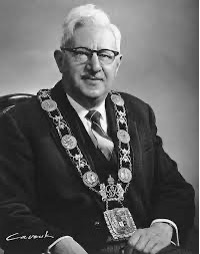
Impact: As the first Jewish mayor of Toronto, Nathan Phillips broke barriers in Canadian politics. During his tenure, he led major urban renewal projects, including the construction of Toronto City Hall—a modernist architectural landmark that still defines the city’s skyline today. Phillips also promoted multiculturalism, advocating for greater inclusion of immigrant communities in Toronto’s political and social landscape. His leadership helped shape Toronto into the diverse, inclusive metropolis it is today. In recognition of his contributions, Nathan Phillips Square (the plaza in front of City Hall) was named in his honor.

Izzy Asper (1932–2003) – Media & Business
Contribution: Founder of CanWest Global Communications, philanthropist, and advocate for Holocaust education.
Time Period: 1970s–2000s
Impact: Izzy Asper transformed Canada’s media landscape by building CanWest Global Communications, which became one of the largest media companies in Canada. At its peak, CanWest owned major television networks, newspapers, and media outlets across the country, giving Canadians access to independent and diverse news coverage. Beyond business, Asper was a fierce advocate for free speech and journalism ethics. In his later years, he focused on philanthropy, founding the Canadian Museum for Human Rights in Winnipeg, which educates Canadians about human rights issues, including the Holocaust and Indigenous rights. His legacy continues through the Asper Foundation, which supports education, culture, and human rights initiatives.
Marcel Adams (1920–2020) – Real Estate & Philanthropy
Contribution: Real estate mogul who built an empire of shopping centers across Canada and supported Jewish and medical research initiatives.
Time Period: 1950s–2020
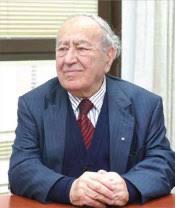
Impact: Born in Romania, Marcel Adams survived the Holocaust and immigrated to Canada in 1951. Despite arriving with little money, he built Imaflex, one of Canada’s largest shopping center and real estate development firms. His business transformed Montreal’s urban landscape, contributing to commercial development and economic growth. Adams was also a major philanthropist, funding Jewish education, healthcare, and scientific research, including contributions to brain research at Université Laval. His incredible rags-to-riches story serves as an inspiration for Canadian entrepreneurs and immigrants.
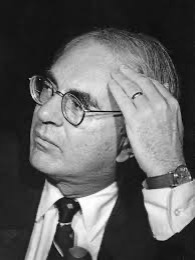
Allan Gotlieb (1928–2020) – Diplomacy & Canadian Foreign Policy
Contribution: Canada’s Ambassador to the United States (1981–1989), played a crucial role in shaping modern Canada-U.S. relations.
Time Period: 1970s–1990s
Impact: One of Canada’s most influential diplomats, Gotlieb was a key architect of the Canada-U.S. Free Trade Agreement (1988), which laid the groundwork for NAFTA and strengthened economic ties between the two countries. He modernized Canadian diplomacy, emphasizing stronger lobbying and strategic influence in Washington. His leadership helped Canada secure better trade deals, positioning Canada as a key player in North American economic affairs. After his diplomatic career, he continued to shape Canadian public policy as a mentor and advisor to future politicians. His legacy in Canadian foreign policy remains highly regarded.
Melissa Lantsman (b. 1984) – Politics & Public Affairs
Contribution: Member of Parliament, Deputy Leader of the Conservative Party, LGBTQ+ advocate.
Time Period: 2021–present

Impact: Melissa Lantsman made history in 2021 as the first Jewish LGBTQ+ Member of Parliament in Canada, representing Thornhill, Ontario. As Deputy Leader of the Conservative Party, she has become one of the most prominent Jewish politicians in Canada today. Lantsman has been a strong voice for conservative policies, free speech, and economic reform, while also advocating for Jewish community interests, Israel-Canada relations, and LGBTQ+ rights. Her leadership has helped increase Jewish and LGBTQ+ representation in Canadian politics, ensuring that minority voices are heard in national decision-making.

Irwin Cotler (b. 1940) – Law, Human Rights & Politics
Contribution: International human rights lawyer, former Minister of Justice, advocate for Holocaust education and Jewish rights.
Time Period: 1970s–present
Impact: Irwin Cotler is one of Canada’s most influential human rights lawyers, having served as Minister of Justice (2003–2006) and Member of Parliament for Mount Royal (1999–2015). He played a key role in shaping Canada’s Charter of Rights and Freedoms, advocating for free speech, minority rights, and international justice. Cotler has defended political prisoners worldwide, including Nelson Mandela and Natan Sharansky, and has been a leading figure in combatting antisemitism, Holocaust denial, and hate speech laws. As the founder of the Raoul Wallenberg Centre for Human Rights, Cotler continues to fight against human rights abuses globally and remains a respected voice on justice, democracy, and Jewish advocacy.
Rosalie Silberman Abella (b. 1946) – Supreme Court Justice & Human Rights Advocate
Contribution: First Jewish woman appointed to the Supreme Court of Canada, architect of employment equity law.
Time Period: 1970s–present
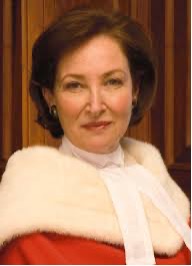
Impact: Rosalie Abella was appointed to the Supreme Court of Canada in 2004, becoming the first refugee and Jewish woman to serve as a Supreme Court Justice. Born in a displaced persons camp in Germany after the Holocaust, her family immigrated to Canada, where she became a pioneer in human rights law. She is best known for developing the concept of employment equity, which ensures fair treatment of minorities and marginalized groups in the workforce. Her judicial career has shaped Canadian constitutional law, human rights protections, and gender equality policies, influencing both national and international legal frameworks.

Stephen Lewis (b. 1937) – Politics & Global Humanitarianism
Contribution: Former leader of the Ontario New Democratic Party (NDP), UN Special Envoy for HIV/AIDS in Africa.
Time Period: 1960s–present
Impact: Stephen Lewis has been a lifelong advocate for social justice, healthcare, and global humanitarianism. As leader of the Ontario NDP (1970–1978), he fought for workers’ rights, education reform, and social equity. His most profound impact came through his work with the United Nations, where he served as Canada’s Ambassador to the UN and later as Special Envoy for HIV/AIDS in Africa (2001–2006). His foundation, the Stephen Lewis Foundation, has provided critical funding for HIV/AIDS prevention, women’s rights, and refugee assistance across the developing world. He is considered one of Canada’s most respected humanitarians, shaping international policies on healthcare, poverty reduction, and human rights.
Naïm Kattan (1928–2021) – Literature & Multiculturalism
Contribution: Award-winning author, cultural advisor, and promoter of Canadian multiculturalism.
Time Period: 1960s–2020s

Impact: Naïm Kattan was a Jewish Iraqi-Canadian writer who helped define Canada’s literary landscape. Immigrating from Baghdad in 1954, he wrote extensively about Jewish identity, exile, and Canadian multiculturalism. His books, including Farewell Babylon, explored immigrant experiences and the struggles of minority communities in Canada. As a director at the Canada Council for the Arts, Kattan was a champion for minority and immigrant writers, helping establish Canadian multiculturalism as a cornerstone of national identity. His work has influenced literary policy, cultural funding, and diversity in Canadian arts.

